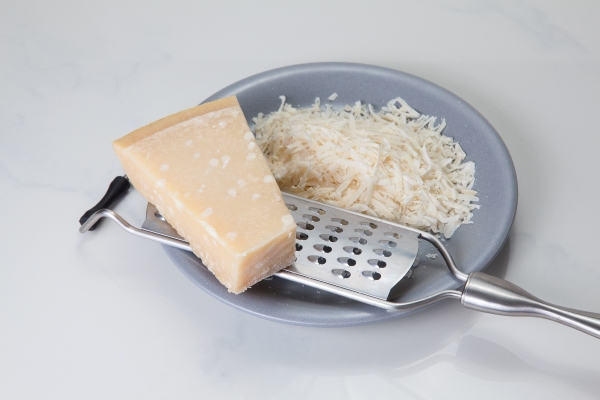
The US has interfered in the EU-China bilateral trade negotiations by formally objecting to the protection of trademarks under the EU's geographical indications quality scheme.
According to a report by Euractiv.com, the Consortium for Common Food Names (CCFN) – a US-based alliance to preserve the right to the use of generic food names – filed objections with the Chinese government claiming that the generic names for meats and cheeses were being threatened by the trade talks.
Under the bilateral deal, China and the European Commission have agreed a draft list of 200 mutually recognised geographical indications (GIs) – 100 from each side – which designate certain food products with a certified geographic origin to highlight quality and authenticity and allow premium price tags.
The agreement would protect the GIs in each territory against "imitations and usurpations".
Geographical indications are central to the EU's food quality schemes. Greek feta, Spanish olive oil and Italian balsamic vinegar are among the GIs currently listed in the EU-China agreement, which is expected to be signed later this year.
However, the CCFN has objected to the inclusion of common names in the EU list of GIs under consideration – notably the common names 'feta', 'asiago' and 'gorgonzola'. It also urged clear protections for generic terms at risk of being restricted by compound GI names, including 'parmesan' from Parmigiano Reggiano, 'mozzarella' in Mozzarella di Bufala Campana, 'prosciutto' in Prosciutto di Parma and Prosciutto di San Danielle, 'grana' in Grana Padano, 'romano' in Pecorino Romano, and 'cheddar' in West Country Farmhouse Cheddar.
The US Wine Institute has also objected to the inclusion of generic wine grape varieties.
The CCFN claimed the EU was monopolising the names for no good reason. "These generic terms are not new names or products in China or around the world, and there is no reason their names should belong solely to the EU. The EU must not be permitted to monopolise these names to unfairly eliminate competition," Jaime Castaneda, CCFN executive director, said in a statement. "We know from market research that many of the common name products at issue here, which are produced in many countries, have been sold in China and referenced in restaurant offerings for years."
Indeed, examples of trademarks already used in China include the cheeses Asiago, Cheddar, Feta, Gorgonzola and Parmesan.
There are also a number of counterfeit trademarks in use in the country, which are Chinese-registered trademarks of falsely labelled products purporting to be EU-produced. According to reports, China is refusing to cancel these trademarks as part of the trade deal, although Brussels is not actively seeking to have them removed. Eight European countries are currently filing a lawsuit against China to annul 25 counterfeit trademarks.
The CCFN said it did not object to the protection of legitimate GI compound names such as 'Prosciutto di Parma' but stressed that China must clarify that generic terms within such names – such as 'prosciutto' – remain free for use.
"In some past EU agreements with other nations this has not been clear, resulting in confusion and unfair market restrictions. In other cases, countries have opted to provide such clarity, to the benefit of all involved in maintaining a variety of supply source options throughout the value chain," the Consortium said in a statement.
"We applaud the Chinese government for inviting comment on the GI proposal, and we are using this process to vigorously defend the rights of producers around the world to continue to use key common names in China," said Castaneda. "It is essential that China's trading partners, including the US government, now work closely with China to ensure that the process is a genuine one that appropriately results in the rejection of GIs for terms already in common usage."
According to the Geneva-based Organization for an International Geographical Indications Network (oriGIn), which campaigns for the protection and enforcement of GIs, the CCFN objection will be taken into consideration when the trade deal nears finalisation.
"We are convinced that these assessments will be made on the basis of exclusively legal reasons, and are therefore optimistic about the full recognition in China of all the European geographical indications on the list," Massimo Vittori, director of oriGIn told Euractiv.com.
In March, the CCFN urged the Trump Administration to aggressively oppose "unacceptable" geographical indications policies "designed to help European farmers, food producers and others by forcing non-Europeans to rebrand" their products, claiming that EU GI policies "amount to a growing threat to US manufacturing of foods with common names".
The CCFN has also objected to the EU-Japan trade deal where Japan has tentatively agreed to protect up to 210 GIs. The Consortium claims the deal effectively bars several US producers selling certain cheeses to Japan.
©
SecuringIndustry.com
 | back to top
| back to top





